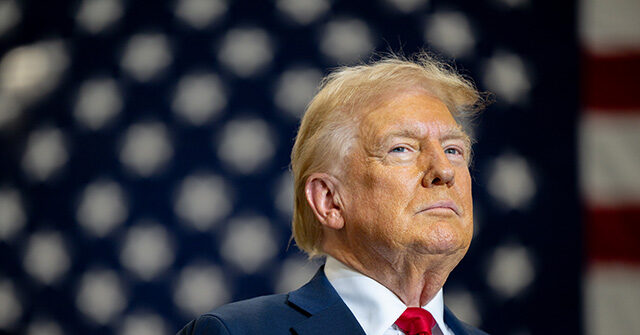Former President Donald Trump has stirred considerable controversy in mainstream media by suggesting he would take action against what he views as “enemies from within” the country, even potentially invoking military power if deemed necessary. Democrats have expressed feigned shock at his declarations, although their own historical actions—such as the military presence during the Capitol riots in 2021 and various prosecutions against Trump and his supporters under the guise of defending democracy—may undermine their outrage. Critics, including Vice President Kamala Harris, have characterized Trump’s comments as a threat to use the Department of Justice as a weapon against political adversaries, implying that he might target journalists, judges, and others. Some have speculated, albeit outlandishly, that he intends to execute political rivals, a notion that is not grounded in reality. Nevertheless, there are legitimate threats to democracy that demand Trump’s attention.
One significant threat is political violence from radical activist groups, particularly those aligned with left-wing ideologies. These groups have historically engaged in violence, as witnessed during the unrest that marred the 2017 inauguration and during 2020’s widespread rioting across major cities. Democrats themselves have occasionally invoked the National Guard during these events. Trump’s administration, should he regain power, might justifiably pursue investigations into such groups, especially if they attempt to thwart his governance once again. The FBI has been criticized for its failure to properly investigate organizations like Antifa, with the Department of Justice under President Biden accused of ignoring the rising tide of antisemitic violence. A more rigorous approach is needed to hold individuals and organizations accountable for civil rights violations against vulnerable communities.
In addition to external threats, there exists a considerable internal threat posed by politicians and prosecutors who wield their authority against Trump and his supporters. High-profile figures such as Rep. Adam Schiff (D-CA) have been accused of manipulating intelligence information and undermining civil rights during investigations like the first impeachment. Despite these actions, Schiff is poised for promotion to the Senate, raising questions about accountability in political office. The January 6 Committee has also drawn scrutiny for its perceived lack of due process and for actions that seemingly tilted the scales of justice to favor their narrative while damaging the rights of individuals tied to the events of that day. There is a clarion call for oversight into how these investigations are conducted, as the legitimacy of due process must be preserved even in politically charged contexts.
Another area of concern is the abuse of tax-exempt status among various organizations that politically align with the Democratic Party. Groups like Media Matters are seen as partisan entities operating under the guise of nonprofit organizations, focusing more on silencing conservative perspectives than on correcting factual errors in the media. The exploitation of tax-exempt status raises critical questions about regulatory oversight and the integrity of charitable organizations. Moreover, numerous groups coordinated a “shadow campaign” to obstruct Trump’s reelection bid in 2020, highlighting the extensive resources and organization behind their efforts. Investigating such operations not only addresses questions of fairness in the political arena but also emphasizes the need for transparency in how these entities function within the fabric of democracy.
The situation necessitates a response that is not simply a matter of political retaliation or suppressing dissenting voices; rather, it is about safeguarding the constitutional foundations of American democracy. The well-organized efforts of the far-left pose a substantial risk that necessitates scrutiny and, where appropriate, accountability. It’s crucial for Trump, should he return to office, to balance his actions within the constitutional limits of his authority. This perspective recognizes the legitimacy of addressing threats but would demand that he, unlike his opponents, imposes boundaries to avoid overreach and maintain the integrity of his administration.
As the political landscape continues to evolve, discourse surrounding figures like Trump and the approaches they propose can significantly influence public perception and policy direction. Joel B. Pollak, a prominent commentator and editor, outlines these dynamics, emphasizing the importance of focused investigations into radical groups, the accountability of public figures, and the ethical operations of organizations involved in political strife. Trump’s suggestions, while polarizing, may be indicative of deeper societal rifts that necessitate serious engagement rather than mere denunciation. Ultimately, the integrity of democracy hangs in the balance, calling for a dialogue that permits robust defense against genuine threats without straying into autocratic tendencies. It remains vital to ensure that any measures taken to safeguard democracy do not compromise the fundamental principles that define it.

